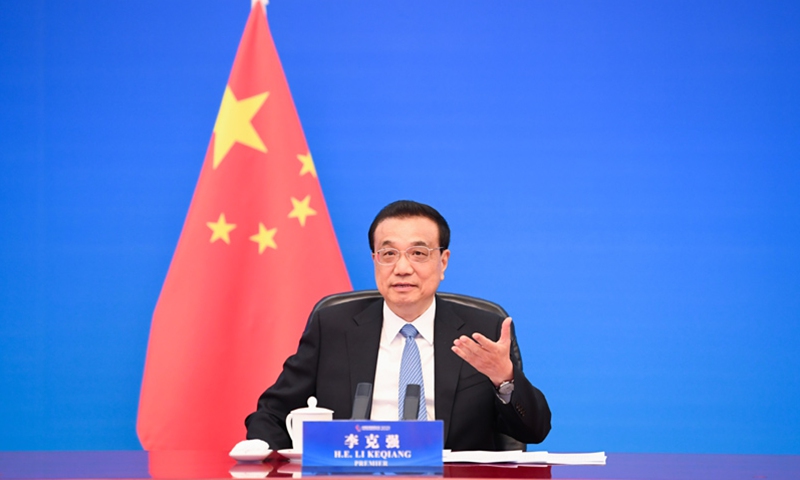China to support small businesses by tackling monopolies, stabilizing raw material prices

Chinese Premier Li Keqiang Photo: gov.cn
China will roll out a series of measures to further support micro enterprises and solve difficulties for small businesses, including establishing a supply-demand docking platform to help small enterprises cope with rising raw material prices and cracking down on monopolistic practices, according to a State Council executive meeting held by Chinese Premier Li Keqiang on Wednesday.
China will clear up policies and regulations that stand in the way of any market entities' participation in economic activity, so that businesses will be treated equally, the meeting stressed.
In particular, China will push legislation against monopolistic practices and unfair competition, while punishing activities like price dumping or malicious subsidies for the sake of grabbing market share.
Chinese regulators have recently hit Alibaba with a record fine of 18.23 billion yuan ($2.8 billion) in its anti-monopoly investigation of the tech giant. A number of other domestic tech companies including Tencent and Baidu have also been fined recently for violating anti-monopoly laws.
The meeting also noted that China will support large enterprises to set up supply-demand docking platforms in key industries, in order to help stabilize raw material supply and prevent price gouging.
Apart from that, the country will continue to support micro enterprises with inclusive finance. For example, the possibility of shortening the acceptance period for commercial drafts from one year to six months to relieve funding pressure for enterprises is being considered.
China's emphasis on protecting micro enterprises comes at a time when small companies, a vital part of the Chinese economy, are under pressure due to the effects of the coronavirus pandemic. China rolled out a series of measures last year like tax cuts and fee discounts to relieve the burden for these companies.
There were more than 44 million micro enterprises in China and more than 95 million individual businesses by the end of April.
